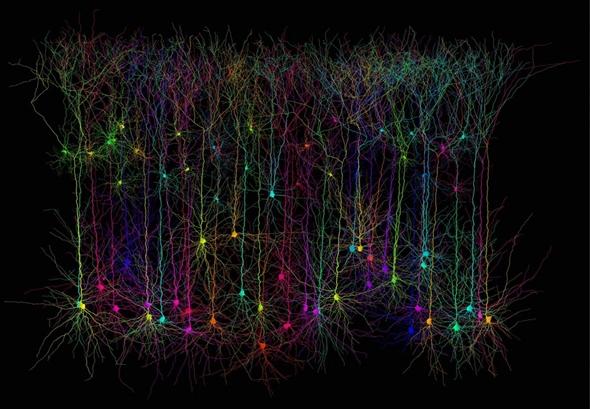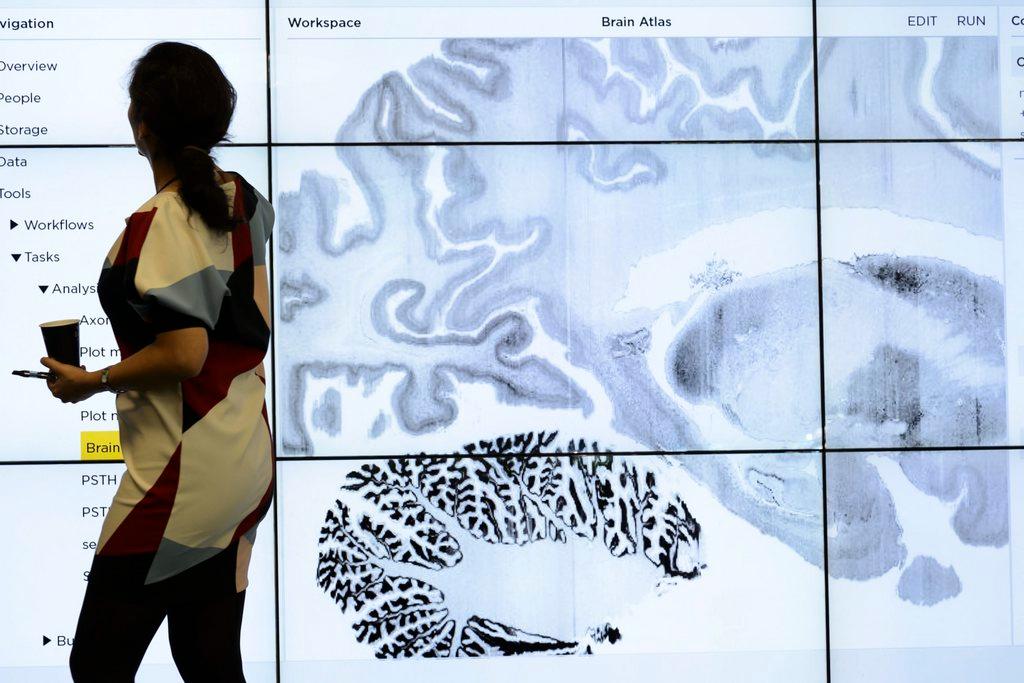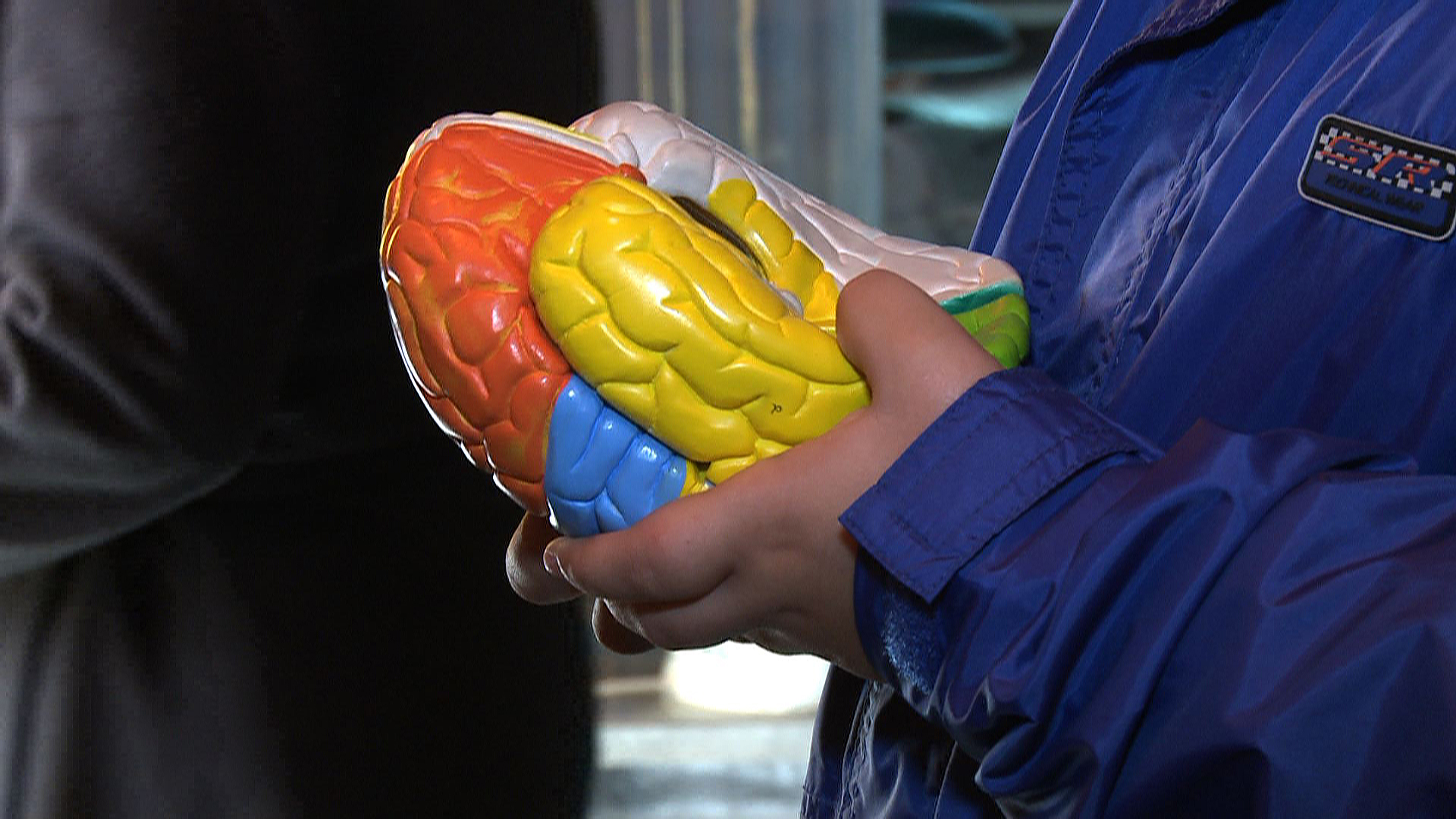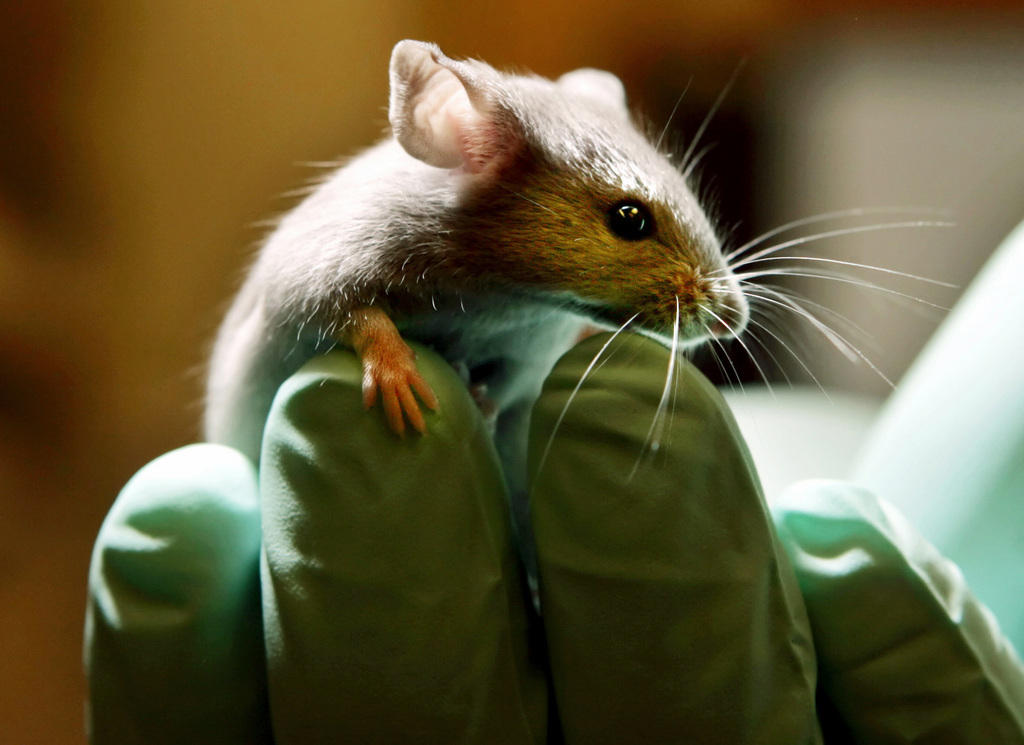‘Driving’ mice to steer neuroscience research

Swiss researchers are part of a new brain project: the International Brain Laboratory (IBL). Using mice equipped with steering wheels, its goal is to understand how neurons help us make choices.
Inaugurated on Tuesday, the IBLExternal link is a virtual laboratory that brings together researchers from 21 European and American neuroscience labs. Together they will record the activity of thousands of neurons in mice performing the exact same task: “driving”.
“It is driving, actually. The animal looks at a white screen and he has to move a black line to the centre,” explained IBL researcher Alexandre Pouget, professor in the Department of Fundamental Neurosciences in the University of Geneva Faculty of Medicine.
But what’s in it for the mouse – a morsel of Swiss cheese?
“Cheese would be a bit complicated,” laughed Pouget. “If they do it, they get a drop of water,” he noted, promising that the mice were not dehydrated. However, they do wear implants on their brains to record neuron activity. In addition, light-sensitive proteins will provide optical clues as to how the mice decide whether to drive left or right.
“We’ll also observe the pupils, whiskers and other anatomical measures to figure out which neurons are talking to each other,” Pouget said.
What’s especially significant is the precise international collaboration, and the identical experimental procedures.
“We will be able to pool data as if it were a single giant experiment, even though it is in fact distributed between two continents,” said Zachary Mainen, an IBL researcher based at the Champalimaud Foundation in Lisbon, in a media releaseExternal link. “The approach is a big departure for neuroscience, where it has been difficult to integrate results into a common theoretical framework due to differences in methodology and lack of motivation to share and standardize data.”
For the initial four years, the Simons Foundation in the US and Britain’s Wellcome Trust have committed a total of CHF14 million ($14.6 million). Pouget says the work will go on long beyond that.
“It’s the ultimate quest to understand the brain,” he said. The IBL involves labs located in Switzerland, the US, Britain, Portugal and France.

In compliance with the JTI standards
More: SWI swissinfo.ch certified by the Journalism Trust Initiative





You can find an overview of ongoing debates with our journalists here. Please join us!
If you want to start a conversation about a topic raised in this article or want to report factual errors, email us at english@swissinfo.ch.